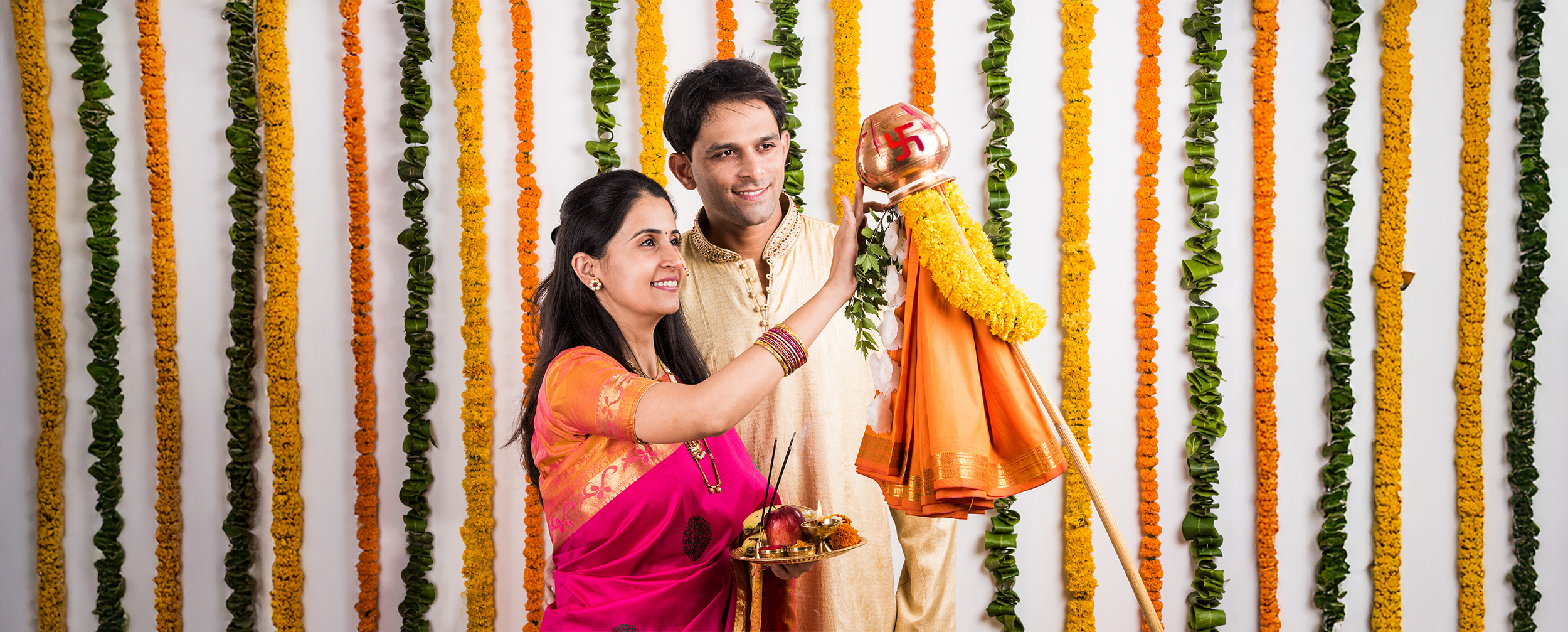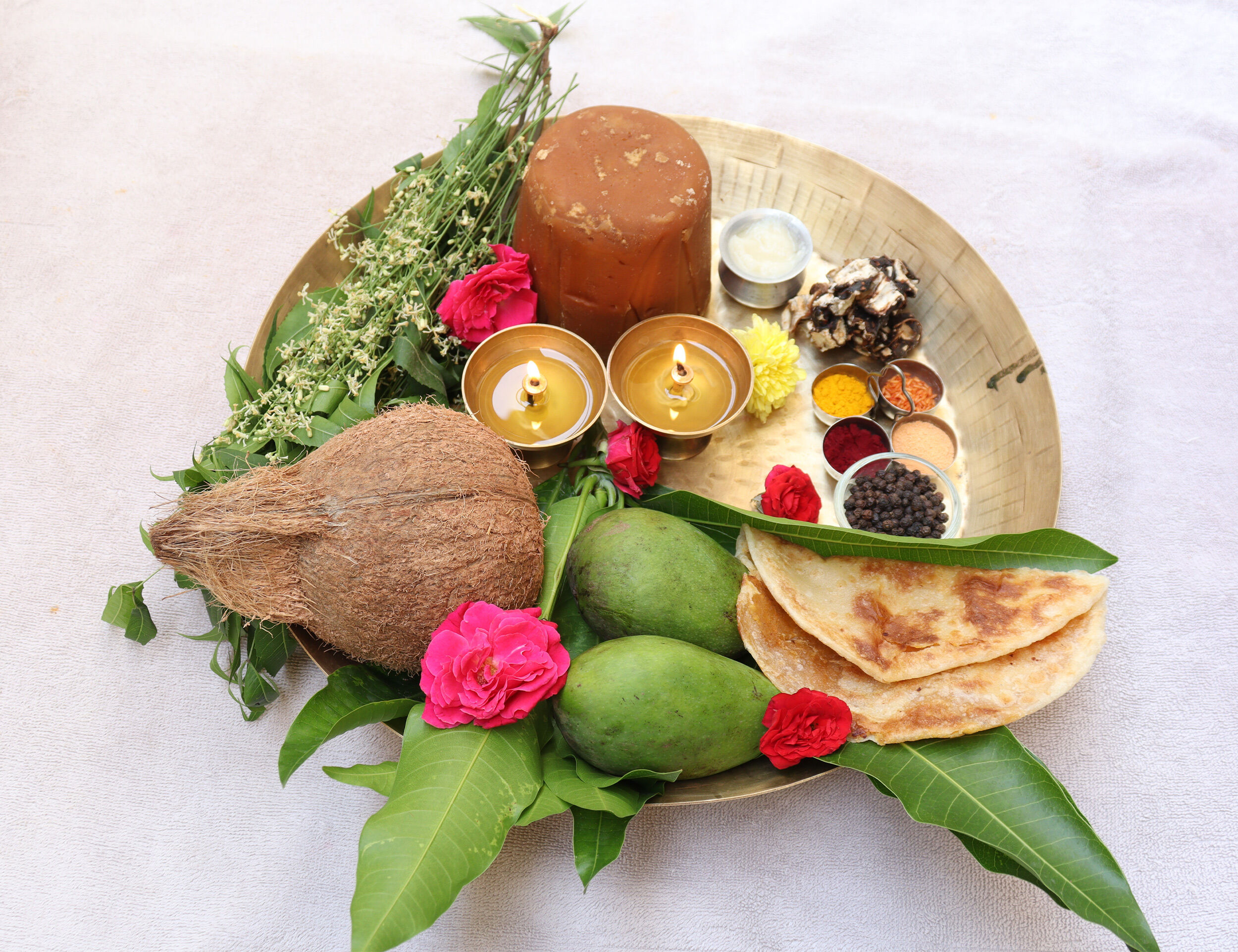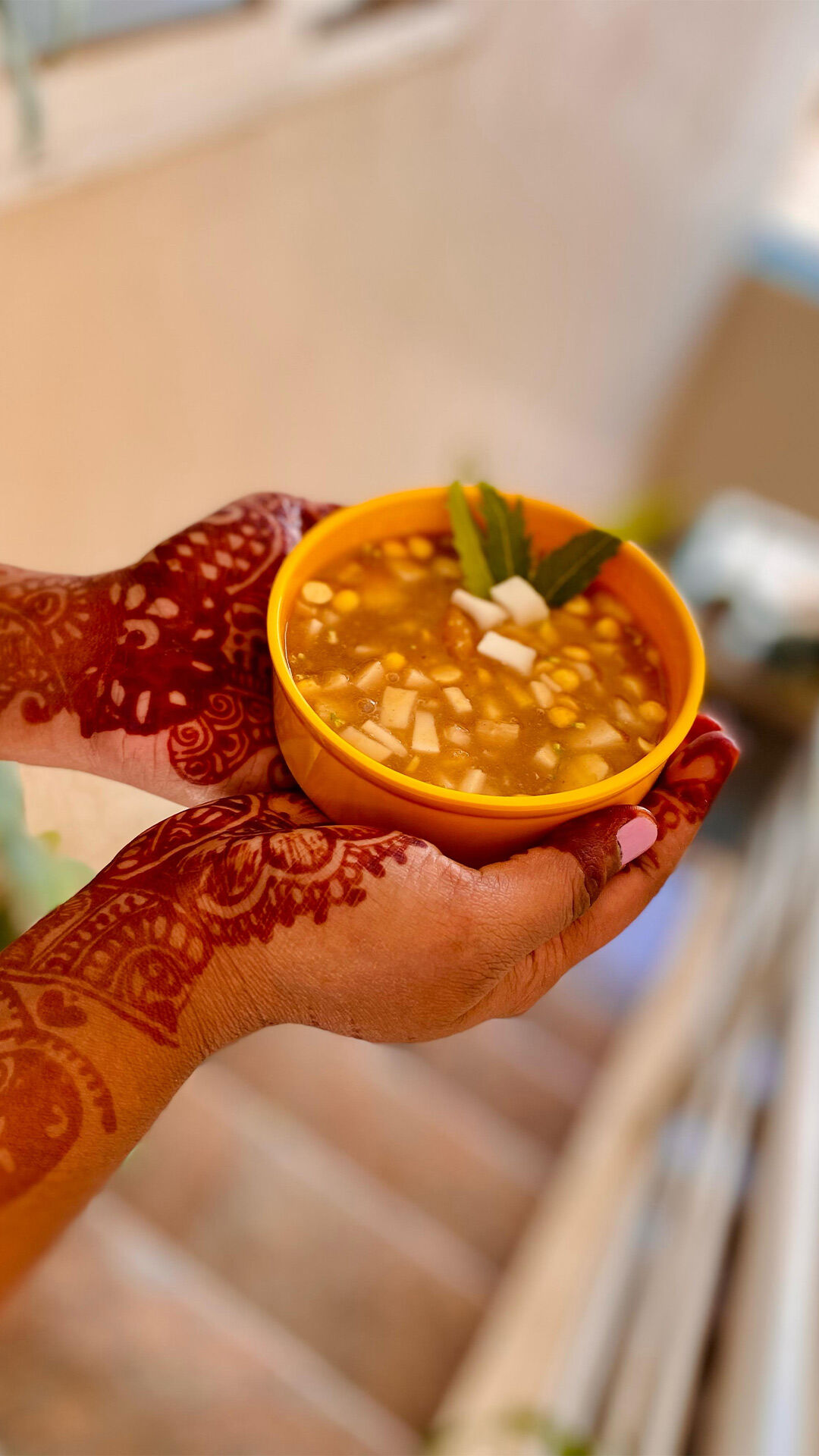STORIES BY DIWAS

Lifestyle
Celebrating Ugadi: Traditions, Significance & Joyful Customs
Date 28 March 2025 Reading time: 7-10 mins
What is the Ugadi festival? It’s the Hindu New Year festival predominantly celebrated in South India, and it’s one of those days that brims with hope, optimism, and the promise of fresh starts.
Imagine the air filled with the sweet fragrance of neem flowers and mango leaves, colourful rangolis adorn doorsteps, families gather to feast on traditional delicacies, and the streets come alive with music, dance, and laughter. It’s not just a festival; it's a joyous cultural extravaganza that marks the arrival of spring and the start of a new lunar calendar.
So, let's dive in and explore the deep importance of the Ugadi festival, its well-established traditions, and jubilant celebrations that make Ugadi such a beloved and meaningful occasion for millions of Indians.
The Significance of the Ugadi Festival
The importance of the Ugadi festival lies in its role as a cultural and spiritual celebration marking the start of the Hindu New Year, symbolising renewal and new beginnings.
Historical Background of Ugadi Festival
Ugadi, also known as Yugadi, has been celebrated for centuries in states like Andhra Pradesh, Telangana, Karnataka and Maharashtra. The festival derives its name from the Sanskrit words "yuga" (age) and "ādi" (beginning), signifying the start of a new era.
According to Hindu scriptures, it was on this auspicious day that Lord Brahma, the creator of the universe, began the creation of the world. Thus, the importance of the Ugadi festival symbolises the dawn of a new cosmic cycle, a time for fresh starts and new possibilities.
Spiritual Importance of the Ugadi Festival
Beyond the historical context, Ugadi holds immense spiritual significance for Hindus. The significance of the Ugadi festival is seen as a day to reflect on the past, seek blessings for the future, and connect with the divine.
Many people start the day with a ritual oil bath, visit temples to offer prayers, and seek the guidance of priests who read out the "Panchanga"—the Hindu almanac that predicts the fortunes for the year ahead. It's a time to let go of negativity, forgive and forget, and embrace a positive mindset.
Ugadi Festival and the Hindu New Year
Ugadi marks the first day of the Hindu lunisolar calendar, also known as the Chaitra Suddha Padyami. While different regions may follow slightly varied calendars, Ugadi is widely recognised as the Hindu New Year's Day across South India, highlighting the significance of the Ugadi festival in marking the start of a new year.
The festival usually falls in March or April, coinciding with the spring equinox. This timing is symbolic, as it represents the revival of nature, the blossoming of new life, and the spirit of renewal that Ugadi embodies. The significance of the Ugadi festival is reflected in the way it emphasises renewal, growth, and the start of a fresh cycle.
Traditions of Ugadi Festival
The traditions of the Ugadi festival are steeped in cultural rituals that set the stage for the grand preparations and celebrations that follow.
Preparation for the Festival
The preparations for Ugadi often begin days in advance. Homes are thoroughly cleaned to remove any traces of the old year and make way for the new. People shop for new clothes, decorate their houses with mango leaf torans, and draw intricate rangoli patterns on their doorsteps.
The most important ritual, however, is the preparation of the Ugadi Pachadi—a unique culinary creation that holds a deeper philosophical meaning.
Rituals and Customs
The Ugadi Pachadi is a must-have delicacy that beautifully encapsulates the essence of the festival. This flavourful chutney-like dish is made with six key ingredients: jaggery (sweet), neem flowers (bitter), tamarind (tangy), green chilli (spicy), salt and sometimes raw mango.
Each ingredient represents a different taste and symbolises the various experiences life offers—joy, sorrow, anger, fear, disgust, and surprise. By consuming this pachadi, people acknowledge and accept that life is a mix of flavours and feelings that must all be embraced equally.
Another significant Ugadi tradition is the recitation of the Panchanga Shravanam, where priests or learned elders read out the almanac predictions for the coming year. Listening to these astrological forecasts is considered auspicious and sets the tone for the months ahead.
Special Dishes and Delicacies
Apart from the iconic Ugadi Pachadi, the festival is marked by a lavish spread of traditional delicacies. Families bond over elaborate feasts, with the menu varying across regions.
In Andhra Pradesh and Telangana, popular Ugadi dishes include pulihora (tamarind rice), bobbatlu (a flaky stuffed flatbread), and garelu (vada). Karnataka celebrates with holige or obattu (puran poli), while in Maharashtra, puran poli and shrikhand are festive favourites.
No Ugadi spread is complete without an array of lip-smacking chutneys, pickles, and papads. The food symbolises abundance, prosperity, and the coming together of loved ones.
Celebrations of the Ugadi Festival
Following the vibrant celebrations of Ugadi, the community comes together for various gatherings and events, strengthening bonds and creating lasting memories. Let’s take a closer look at how this unfolds.
Community Gatherings and Events
Ugadi is not just a family affair; it's a time for the whole community to come together and revel in the festive spirit. People visit friends and relatives, exchange sweets and greetings, and participate in cultural events.
Many temples organise special pujas and bhajan sessions, with devotees thronging to seek blessings. Local organisations host music concerts, dance performances, and folk art shows that showcase the rich cultural heritage of the region.
In some places, colourful processions with decorated elephants, horses, and chariots take to the streets, with people dressed in traditional attire joining in the celebrations. It's a vibrant display of unity, joy, and community bonding.
Ugadi Festival 2025: What to Expect
As we look forward to Ugadi on March 30, 2025, we can expect the festival to be a blend of time-tested traditions and contemporary trends. While the core rituals and customs remain unchanged, there may be some modern twists to the celebrations.
For instance, eco-friendly and sustainable practices are gaining popularity, with many opting for natural rangoli colours, reusable decorations, and organic ingredients for festive dishes.
That said, the essence of Ugadi lies in its timeless traditions and the spirit of new beginnings it embodies. Whether you celebrate with a lavish feast or a simple family get-together, the joy and significance of the festival remain unchanged.
The Enduring Appeal of the Ugadi Festival
As we've seen, Ugadi is a festival steeped in history, spirituality, and cultural richness. It's a time to let go of the old and embrace the new, to come together as a community and celebrate the beauty of life in all its shades.
This Ugadi, celebrate in style by donning a stunning kurta or kurta pajama in vibrant hues from Diwas. Be it a refreshing green kurta, a bright red kurta, a cheerful yellow kurta, or a regal gold colour kurta, we have it all. Embrace the tradition, style, and joy of the occasion while celebrating the true essence of renewal and positivity.
So, let’s celebrate this Ugadi with all the fervour and flair it deserves, creating unforgettable memories and moments of happiness.
May this New Year bring you joy, prosperity, and countless cherished moments with your loved ones. Here's wishing you a very happy Ugadi from all of us at Diwas!



